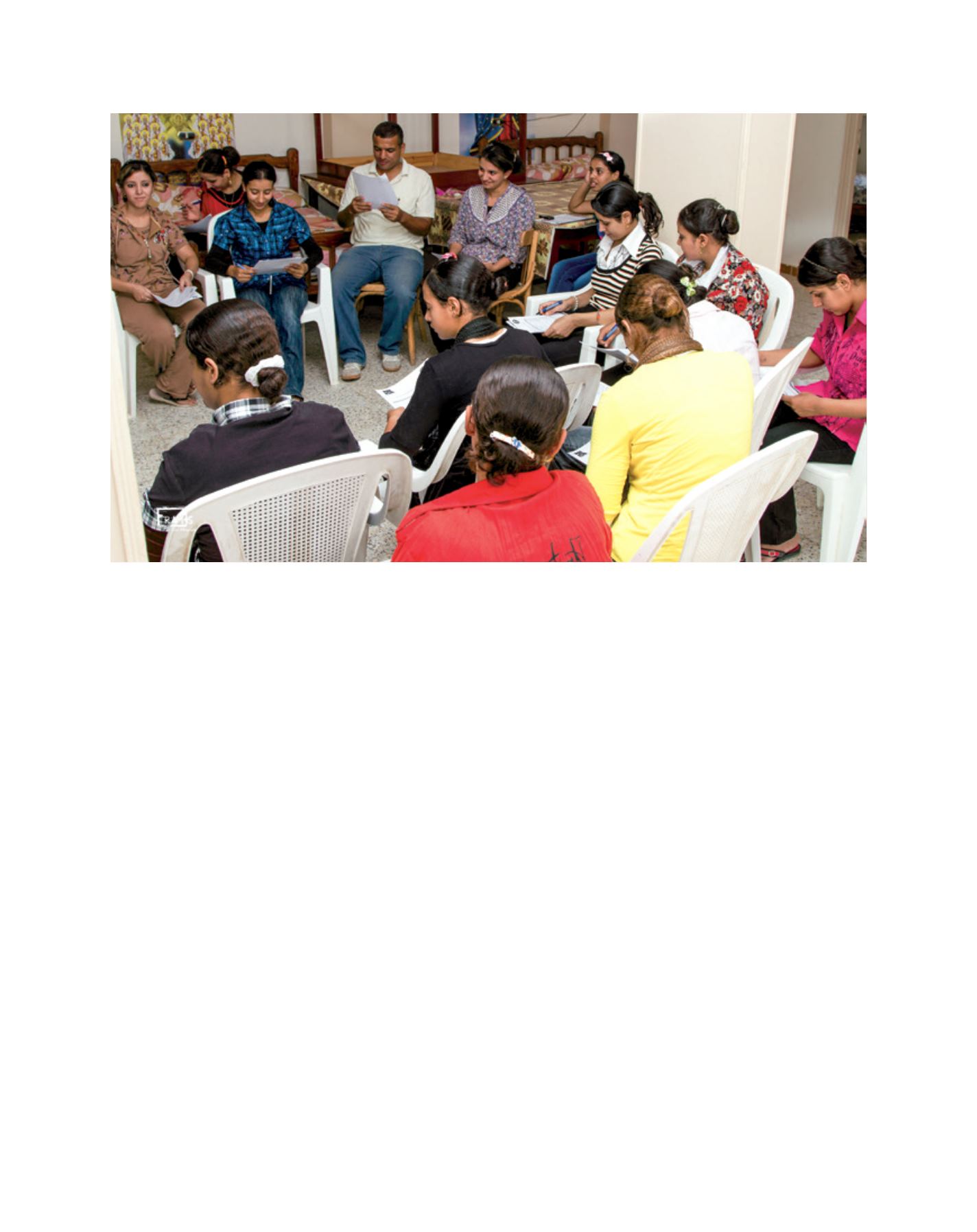

[
] 163
workers relations. Attention can also be paid to the bettering
of the situation of a specific group, such as children, the young
and the vulnerable. In many instances, religious institutions
have engaged themselves, even sometimes deeply committed
themselves, to bettering the situation of these groups.
Decent work
Meanings, rules and ethics related to labour are, or should be,
in the background of any interreligious dialogue related to
labour. The ILO has experienced several times the importance
of such endeavour, be it in Latin America, Africa or Europe,
and its possible contribution to peace. Understanding the local
context, addressing some of the local interreligious challenges,
providing a space for respect, including respectful questioning
and engaging with competent mediating and relay institutions
are essential elements for success. This being said, and surpris-
ingly so, reaching a consensus of key values impacting on the
world of work is within reach. On this basis, I would like to
share with you an experience that we have engaged at the ILO.
This has been engaged at two levels: on the one hand, a
seminar encompassing global issues and, on the other hand, a
series of meeting conducted in target countries: Chili, Senegal,
Ivory Coast and Ethiopia. Each meeting was held with differ-
ent partners representative of the religious scene. Both the
meaning of work and the future of solidarities constituted
the topics of the initial phase of our meetings. At the end, a
handbook was published showing the main values underlying
the decent work agenda.
1
Such experience demonstrated that it is possible to
establish a consensus of values focusing mainly on labour.
Therefore, I concur with the United Nations Educational,
Scientific and Cultural Organization’s strategy for this
decade, which aims at fostering rapprochement among
cultures through the identification of a value consensus in
dialogue with religious traditions.
The word ‘dignity’ resounded constantly among our inter-
locutors in our conversations on labour. In a world where
work is continually changing, dignity remains a reference that
poses a minimal base and a horizon at the same time, along
with involving a critical dimension. It defines a minimum
floor to which to compare those jobs which bring about forced
or bonded labour, for instance, and especially the worst forms
of child labour. But it also offers a horizon since dignity is
closely associated with the capacity of men and women to
create, transform, invent and take on noble roles. This capac-
ity is an essential aspect of what confers dignity to our human
condition at work. We are aware that many jobs are unfor-
tunately offering much less than that. Finally, dignity has a
critical dimension. It allows us to ask ourselves about every-
day work conditions. Does this job allow a family to live, to
educate its children, to give them better living conditions? Is
this job fulfilling or stressing? Are the conditions in which it
is exerted positive, secure, safe?
The same can be said on solidarity. Durkheim had indeed
discovered the mechanisms of transformation of societies,
their change from mechanical solidarity to organic solidarity.
We are now in front of a central question concerning labour,
namely, we are asking if in a world that is getting more and
more deindustrialized as well as in a partially industrialized
world, labour must continue to have a central place or must
Image: ILO
Labour connects people with land, nature, the environment and with their fellow human beings
A
gree
to
D
iffer

















